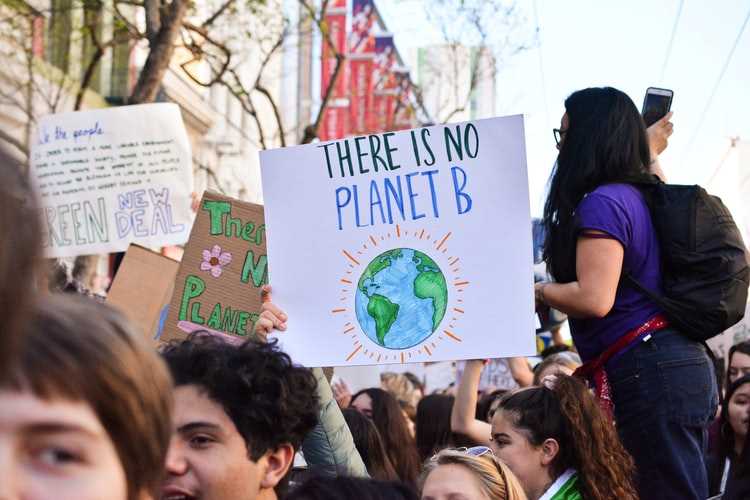
By Santosh Kumar Sahu
The world economy is in the grip of the worst crisis since the Great Depression. The Covid-19 pandemic and the lockdown measures taken to contain it have led to a global recession. The panic caused by the coronavirus epidemic seems to have overshadowed the bigger, long-term threat of climate change. But as the pandemic drags along, environmental activists and world leaders have started paying attention to the climate crisis once again. Harsh summers experienced across the world, irregular rains and other extreme weather events continue to torment the humanity, reminding the world of the challenges posed by the climate change.
The Paris Agreement is a major effort by world nations to address the climate change. The accord, signed by most world nations, has set a long-term temperature goal to limit the increase in global average temperature to below 2 °C above pre-industrial levels. Paris agreement is a major departure from its predecessor Kyoto Protocol. While the Paris Agreement relies on a bottom-up approach, the Kyoto protocol had a top-down approach. The Paris accord is based on what is known as intended nationally determined contributions (INDCs). The idea behind INDCs is to make each country commit to reduce carbon emissions. This leads to a larger question: Will the signatory countries trade off between cutting carbon emission and economic growth? Sustainable development can be achieved only by decoupling of economic growth from carbon emissions.
READ I COVID-19: Developing countries stare at the prospect of lost decade
The challenges in reducing carbon emissions are closely linked to international trade and protectionism. For an effective policy to cut carbon emissions, one needs to look at the impact of trade openness on the decoupling process between economic growth and carbon emissions. The idea of decoupling was proposed in 1989 and OECD used this to analyse the relationship between economic growth and carbon emission in 2002. The understanding of decoupling was further extended to the concepts of primary and secondary decoupling. The most important takeaway from this discussion is that trade openness and carbon emissions are closely linked to each other. It has been observed that trade openness positively impacts carbon emissions and pollution at the national level, and environmental regulations have an impact on international trade.
Learnings for Indian economy
The World Bank has categorised India among lower middle-income countries. The data for lower middle-income countries between 1999 and 2014 show heterogeneity in terms of decoupling and growth. For example, 20-30% of the countries witnessed expansive coupling, 15-20% strong decoupling, and 30-35% weak decoupling, while 20-25% saw expansive negative decoupling. One possible argument for this heterogeneity among the lower-middle-income countries is their focus on economic development at the cost of environmental quality and laxity of environmental rules and regulations. The trade openness has a negative impact on carbon emissions in the emerging market economies.
READ I Income tax assessments: Personal hearing may be needed in many cases
The environmental standards are generally lower in lower middle-income countries compared with high-income countries. The developed economies either transfer or outsource high carbon emission industries to developing economies. In such a scenario, the developing economies should carefully draft their FDI policies, taking into account the environmental priorities. Increasing share of renewable energy in their energy portfolio is one of the sensible options that could contribute the decoupling of economic growth from carbon emission. This increase in the share of renewables would also help the countries mitigate the risks of international oil price fluctuations. The government can attract investment in renewable energy by introducing innovative energy policies and energy saving technologies. In most of the developing countries, economic growth is dependent on energy demand. The shift from non-renewables to renewables would promote sustainable development.
Policies for sustainable development
The emerging economies such as India should adopt policy measure to achieve decoupling of the economy and energy consumption to achieve sustainable economic development. The most important policy target is to improve the energy portfolio and promote low-carbon transformation of the energy portfolio to reduce total aggregate energy consumption.
READ I Covid-induced reverse migration can be a boon for home states
The specific measures needed include a cut in fossil fuel consumption, developing renewable energy sources, promoting clean electricity and focus on the energy saving technologies. As the growth of labour force drives energy consumption and economic growth, there is a need to improve the quality of labour force to cut energy consumption and hence, carbon emissions.
(Santosh Kumar Sahu is Assistant Professor, Department of Humanities and Social Sciences, Indian Institute of Technology Madras. Views expressed are personal.)
